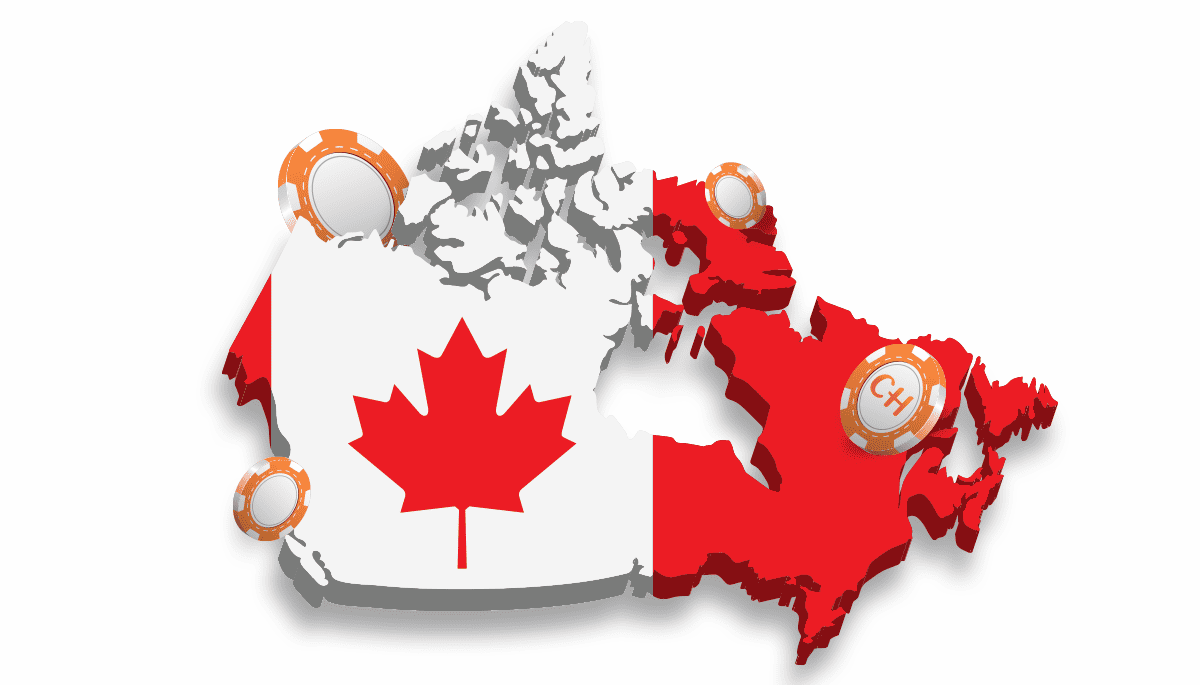Gambling industry in Canada – Statistics & Facts

The history of gambling in Canada pre-dates the arrival of European settlers by quite a while. Sticks and bones were used throughout the Pacific Northwest Coast by indigenous people to play a game called Slahal. Oral histories indicate that the game has pre ice-age origins. More than just a pastime, this game also had important social, spiritual and community significance. European settlers held gambling in low regard, as dice games were deemed illegal by British common law.
Fast forward to today, and Canada has fully embraced gambling. Advances in technology have made online gambling in Canada a popular pastime, with almost 20 million Canadians participating in active gambling. This number puts Canada in the number 8 spot worldwide in online gambling. According to a report by the Canadian Gaming Association the industry is responsible for providing 135,000 full time jobs and is worth in excess of $15 billion.
Most Popular Types of Gambling
Lotteries are by far the most popular gambling activity in Canada, with half of Canadians having played a lottery in the past year. Sports tickets are at the bottom of the popularity contest, making up only 3.1% of the market. Card rooms and horseracing have a similarly small percentage- 3.5% and 3.6%, respectively. Right behind lotteries in popularity are scratch tickets and Raffles, followed closely by casinos (both physical and online).
Land based casinos are becoming less popular, with all of Canada’s super casinos reporting a drop in revenue even before the lockdowns of 2020. Casino revenues in Alberta for 2018-2019 attest to this trend with a 24% decrease in land-based revenues. In an interesting turn of events, the provincial government decided to launch their own online casinos in an attempt to fill the revenue gap. This is a move that was mirrored by almost all of the provinces.
Demographics
Men and women are pretty close when it comes to partaking in online gambling, with males making up 57% and females 43%. It is interesting to note that female gamblers are more prone to using mobile devices than males. 55% of all female gamblers use their mobile phones to play. When it comes to age groups, online gambling is most prevalent in the 18-34 age range- making up 16% of the total. All other age segments are in the single digit percentages.
How Much is the Industry Worth?
The total gambling revenue last year in Canada was $2.65 billion, with more than $1.2 billion coming from the online sector. While this is an impressive figure, it is estimated that a lot of revenue is being lost due to complicated gambling regulation that states that every online gambling provider needs licencing from the provincial government. This means that the online gambling market is not as diverse and large as it could be, and that many offshore casinos are capitalizing on this. It is estimated that annual revenues could jump up to $4 billion if Canada adopted a similar approach to their British counterparts. When it comes to per capita online casino spending, Canadians spend more than gamblers in the US and UK, an impressive $824.68 a year.
Legality of Online Gambling
For the most part, gambling is legal across the country, but online gambling laws are determined locally by each province. To operate legally in Canada, a Canadian online casino needs to apply for a licence from the local authority. At present, each Canadian province has online casinos apart from Saskatchewan. In practice, only the following provinces are allowed to issue online gambling licences: British Columbia, Quebec, Ontario and Manitoba. Without a special licence, online casino websites can only operate locally. Games can be provided across provincial borders only if there is a special agreement between the local authorities of the specific provinces.
Unlicensed offshore operators fall into a grey legal zone, and can operate more or less freely in the country. Canadian criminal law states that only brick and mortar casinos can be penalized. In other words – unless you are physically operating a casino on Canadian soil, you will probably get away with it. Officially, it is illegal for online casinos to target a Canadian audience specifically, but there is no law preventing Canadians from playing in offshore online casino sites.
Future of the Industry
With land based casinos being shut down due to the COVID-19 pandemic, punters worldwide are making the transition to online betting and casinos, and Canadians are no different. This shift, however, started long before the pandemic. Fast, cheap and almost universal internet access and affordable mobile devices have made online gambling accessible to almost everyone. For those players who miss the atmosphere of a real physical casino, there is a wide array of video casinos available online. You can interact with a real dealer in real time through video streaming live casino games. Looking forward, it is not a stretch to say that more and more VR technologies will be incorporated in online casino games.






